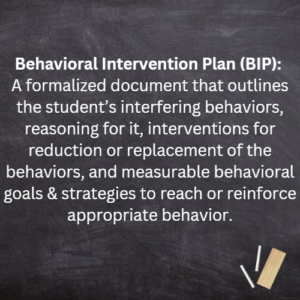Informal Removals Impede the Rights of Children with Disabilities in School
“Amy is having another one of her meltdowns. Please come pick her up as soon as you can.”
“Marcus’s class is going on a field trip tomorrow, and we’re concerned about how he’ll handle it. Please keep him home, for his own safety.”
“Noah’s paraprofessional is out sick today. We need you either to stay here with him for the rest of the day or bring him home for now.”
Each one of these scenarios occurs somewhere in Illinois every day and, in almost every case, it is illegal. Children with disabilities have the right to be educated with their peers, within the school setting, and with the supports and services that will allow them to receive an education. But if a student is regularly removed from their classroom, the student cannot receive that education. When schools ask parents or caregivers to pick up their child, it is often in the middle of the school day, even as early as 10:30am. The reason is typically due to behavioral issues which the staff have not been able to deescalate. The exclusion is called an “informal removal,” but exclusions are actually a disciplinary action, like a suspension or an expulsion. These requests are considered “informal” because they happen outside of the usual disciplinary process: schools rarely keep a record of how many times a student is being informally removed, which skirts the legal requirement for a school to convene a meeting after ten days of exclusions. This obligation is spelled out in federal law for formalized suspensions, and it should initiate a meeting to determine what additional supports a student needs to remain in school all day. Specifically, the team should assess whether the student needs a BIP, a Behavior Intervention Plan, that would help decrease the behaviors that interfere with learning.
The practice of informal removals is extremely problematic for working parents – it is also illegal, because it prevents students from accessing their education and other vital services. The dilemma of informal removals has become so pervasive that the U.S. Department of Education’s Office of Civil Rights (OCR) and Office of Special Education and Rehabilitative Services (OSERS) issued Guidance[1] this past year outlining to public schools that it is their responsibility to meet the needs of children with disabilities and avoid discrimination through the use of discipline.
In response to this unlawful practice, Legal Council for Health Justice, Access Living, and many other education advocates are supporting a new bill in the Illinois legislature to require documentation of informal removals, HB 3600 (Rep. Mussman). This bill would amend the School Code to require that schools properly document when a child is removed from the classroom and provide the child’s parent or guardian with a written notice explaining the action and the specific reasoning. Furthermore, for children with disabilities, this notice would notify parents of the school’s responsibility to convene a meeting with the student’s Individual Education Plan (IEP) or Section 504 plan team, either to review the student’s Behavioral Intervention Plan (otherwise known as a BIP) or to develop such a plan; if the cumulative number of removals exceeds 10 days in a school year.
Legal Council for Health Justice is taking action on informal removals, because our Children and Families Project repeatedly encounters this issue when we speak with parents. Often the removals are undocumented, and always the parents do not realize they have the right to refuse such removals without documentation. Senior Staff Attorney, Sarah Hess (she/her) is currently filing a complaint on behalf of a 10-yr-old student, Cory Johnson*, who has been systematically excluded from receiving his educational rights. 
Cory was being removed from his learning environment an astounding 69% of the school day; the school even told his mother that her son’s “pick-up time is 10:30 AM.”. This is despite the school knowing this child has an IEP and that his “disruptive behaviors” are a direct result of his developmental disability. Not only was Cory deprived of classroom instruction, these repeated removals also kept him from receiving services such as speech-language therapy and bus transportation. Moreover, our legal team discovered that this child was never given a BIP. Although BIPs are not necessary for every child with a disability in the classroom, they are specifically meant to support students whose behaviors are known to interfere with their ability to learn in school. It is the affirmative obligation of a school to develop positive behavior supports and strategies to encourage students and reduce or eliminate impeding behavior.
To make matters worse, when Cory’s mother learned about her son’s right to stay in school all day, the district retaliated against her with a report to DCFS for child neglect. His mother refused to pick up Cory early, so the school began claiming he needed to be picked up for Covid-19 symptoms, though he had no symptoms. A DCFS worker came to the family’s house, noted Cory had no symptoms, and engaged in an intrusive and stressful 60-day investigation of the family. DCFS eventually determined the allegation of “inadequate supervision” was unfounded. The school had weaponized their responsibility as mandated reporters to retaliate against Cory’s mother for exercising her rights!
The unfortunate reality is that Cory’s story is not an outlier; thousands of vulnerable children have been denied a free and appropriate education, and they continue to be socially and academically excluded from their peers through the invisible mechanism of informal removals. This issue disproportionately affects younger, low-income, children of color. The hope for education advocates and Legal Council for Health Justice is that HB 3600 passes so that these discriminatory and unlawful practices are prevented in the future.
—
[1] United States Department of Education. (2002, Jul 19). New Guidance Helps Schools Support Students with Disabilities and Avoid Discriminatory Use of Discipline. https://www.ed.gov/news/press-releases/new-guidance-helps-schools-support-students-disabilities-and-avoid-discriminatory-use-discipline


